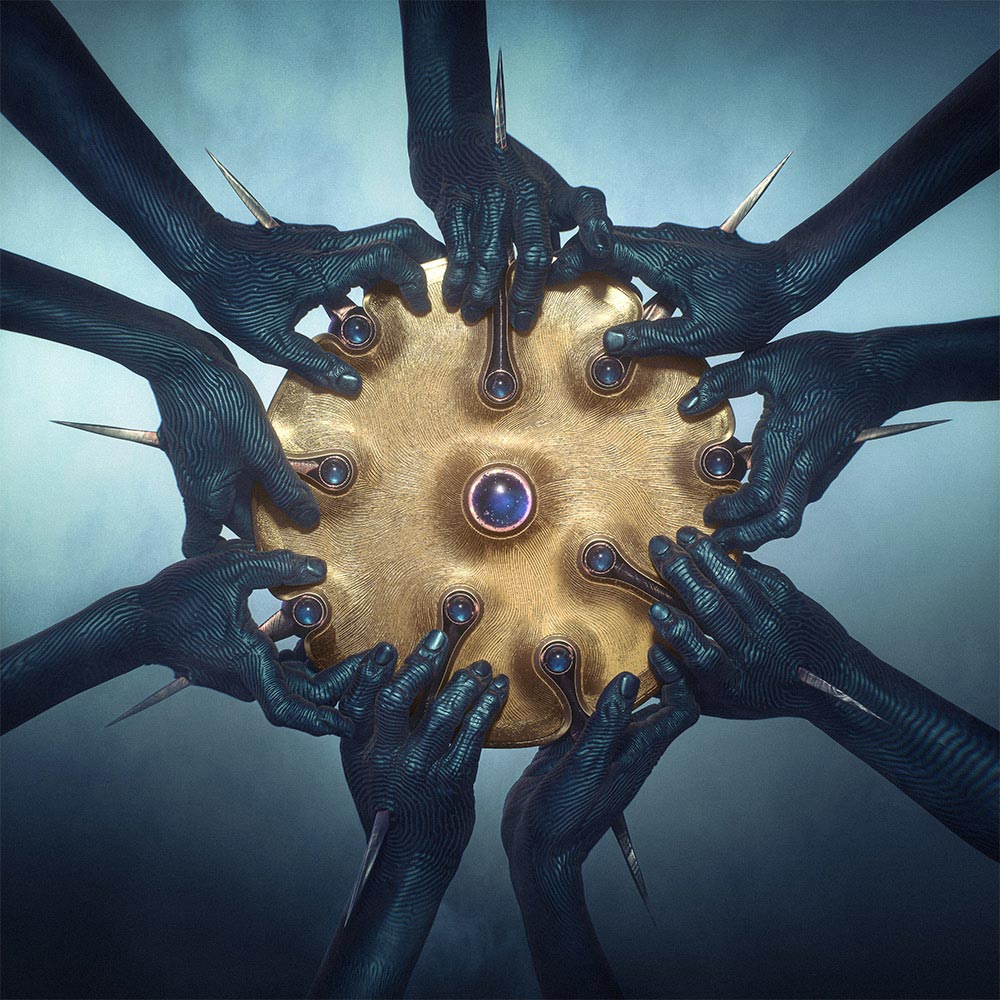Willst du bis zum Tod der scheide,
sie lieben auch in schlechten tagen?
Nein!
Throughout my life, I have gathered, through personal experience, clinical psychology training, my own observations, and various additional sources, a series of impressions, learnings, and thoughts about why marrying, especially for a man, doesn’t seem like a good idea.
This is the third part of a series of articles that compile some of my most relevant conclusions on this topic. You can access the first part by clicking here.

Hypergamy and Divorces
I would like to begin this third part by addressing the topic of hypergamy and how it affects a marriage.
Hypergamy is the tendency to choose a partner with a higher social status than one’s own. In humans, this tendency is exclusively manifested in women. It is an evolutionary, unconscious, and instinctive phenomenon. It’s a tendency they are naturally programmed to follow throughout their lives and has been crucial for their survival and that of their children throughout history.
So, even after marriage, a woman will continue to behave in accordance with her hypergamic nature. In practical terms, this means she will always be actively seeking a partner with higher social status than her current partner, and if she can secure one, she will abandon the current one instantly, without looking back. It’s a natural and instinctive behavior.
Understanding this female tendency should not generate resentment from men. It is about accepting reality as it is. There are significant evolutionary reasons why women have developed these unconscious mechanisms. In fact, simply understanding its existence and how this natural tendency operates could resolve many misunderstandings and help men deal with the situation more effectively.
Generally, women will secure a new partner before leaving the previous one, so if a married woman initiates a divorce process, she has likely already secured her new partner first. Additionally, statistics indicate that divorces have increased in recent decades, with the majority being initiated by women. Hypergamy is one of several factors contributing to this phenomenon.
It is crucial to note that divorce laws, currently, increasingly favor women, especially in Western countries. In a divorce, a woman is likely to get not only custody of the children but also a significant portion of her husband’s assets.
If a woman believes she has already secured the means to live comfortably thanks to the money her husband, (who, as we saw in the second part, she probably doesn’t even find very attractive,) will be legally obligated to give her after the divorce, she may even initiate the divorce process at the first opportunity.
I have heard that nowadays among women, the idea has emerged that “the first marriage is for money, and the second is for love.” In other words, marrying first a man who, although not truly attractive to them, has significant economic prospects, divorcing after being sure the will be receiving money, properties, and assets from that first husband, and then marrying someone who truly attracts them.
Considering the above, we can conclude that getting married doesn’t sound like such a good deal for a man: a woman will always have in mind, instinctively and inevitably, the idea of “replacing him with someone better” due to her natural hypergamous tendencies. Although this dynamic has always existed, online services like social networks and dating apps make this process much easier. Moreover, legally, a woman can receive half or more of the man’s assets in a divorce, even if she initiated the divorce.
It is important to understand that, generally, a woman will have the support of divorce laws, even if her arguments for divorce are difficult to prove and even unreal. Unless there is a change in the laws to favor fairer outcomes, getting involved in such a situation will be extremely risky for a man.
An additional noteworthy fact is that the considerable increase in divorces began in the second half of the 20th century and correlates with the appearance and widespread use of hormonal birth control and the global expansion of feminism.

Hormonal Birth Control, Feminism, and Online Dating Apps
Women have always been selective in choosing a partner. It’s hypergamy operating in its splendor. It has been said that, in part, thanks to this, the human species has managed to thrive because, at least in theory, women have taken on the role of filtering and preserving only the genetic material of the best individuals for posterity. But this natural selective tendency has been distorted thanks to two major modern inventions: hormonal birth control and online dating apps.
These days we take them for granted, but the invention of hormonal birth control is relatively new for humans. It hasn’t even been around for a 100 years. This is nothing compared to the many years humans have been on Earth, and if you consider it, hormonal birth control goes against the way we have naturally evolved.
While men experience a considerably more intense and recurrent sexual impulse than women, this doesn’t mean that women don’t also experience bursts of strong sexual desire, especially in their youth and peak fertility years. If we didn’t share this, we would have gone extinct long ago, I suppose.
So suddenly, when a young woman encounters an alpha male, she is instantly captivated, awakening her desire as she notices the traits that our species is designed to want to preserve. That is, when presented with a man who seems to have excellent genetic material, the species has determined that she should react with considerable sexual desire, seeking to capitalize on this chance encounter to achieve a precious pregnancy.
But when a woman becomes pregnant, she is forced to focus on raising the baby, something that takes years. Even if she desired it, at least during that relatively long period, she cannot afford to engage with other men promiscuously, or she would risk having to take care of more babies simultaneously, probably without the support, protection, and resources that the fathers of the various offspring would provide, as men naturally reject children who are not theirs.
In other words, nature itself provides this brake on women’s own promiscuous tendencies that arise when they encounter other men who strongly and suddenly arouse their sexual impulse.
However, with the use of hormonal birth control, pregnancy never occurs. What has emerged instead is a decrease in female pair bonding capabilities This is gradual and occurs due to the promiscuity that hormonal birth control allows.
By engaging in sexual relations with a man, the unconscious and biochemical processes of emotional pair bonding begin due to the possibility of becoming pregnant. Still, due to the use of hormonal birth control, pregnancy never happens, which begins to confuse her body, so to speak. The natural brake that exists to regulate her promiscuity is also nullified.
Added to this, due to her own hypergamous tendencies, she keeps in mind her intentions to meet and secure a “better guy.” A never-ending array of suitors is available on online dating apps, something never before accessible to women. Reinforced also by feminism, this same woman soon finds herself having sexual intercourse with a different guy, starting the biochemical pair bonding process again, followed by body confusion as pregnancy never occurs.
By repeating this cycle, again and again, the result has been that many women have diminished their capabilities to create the biochemical pair bonding that naturally arises in them when they have sexual intercourse with their partners, as if that function in their brains had some sort of short circuit. As if they had worn it out. It makes sense. In a way, they have taught their bodies that there is no need to create any emotional attachment with their sexual partner, no personal bond, as pregnancy will never happen, and they will soon be with someone else.
I find it very interesting to understand this innate facility women have for changing partners, which arises not only from their hypergamy but also due to an evolutionary dynamic that in the Red Pill community is called ‘War Brides’. You can read more here, in this brilliant article by Rollo Tomassi.
Ultimately, this decrease in women’s capacity for pair bonding has a negative impact on men’s lives and on marriages. Some of the consequences are increased infidelity on the part of the woman and a higher likelihood that she will initiate divorce. There are statistics that support both situations being positively correlated with the number of sexual partners a woman has had before marriage.
We could interpret it simply as an additional risk, to add to the enormous list of risks that getting married entails today, especially for a man. Knowing this also broadens our understanding of why men instinctively reject promiscuous women, considering them inherently of lesser value, and of greater risk to the certainty of the paternity of their children.
It is essential to clarify that this loss of emotional pair bonding capabilities, due to hyper-promiscuity, does not happen in men in the same way since by nature, they are designed to seek multiple sexual partners and spread their genetics as much as they can.
Women, on the other hand, have evolved to filter men for their fitness, and commit to and bond with one of them in the long term, given how vulnerable they are when pregnant and the need for care and provision for their children over an extended period. This is what is naturally intended for our species, and less than 100 years of hormonal birth control won’t change hundreds of thousands of years of evolution.
An interesting additional fact is that women taking “the pill” tend to choose men with traits contrary to “alpha types,” whom they typically find attractive since, without going into details, these hormonal contraceptive methods have the side effect of causing confusion in their bodies and perception. Many times, upon discontinuing hormonal birth control, they realize that their partner actually seems weak and unattractive.
Nature could not anticipate the emergence of hormonal birth control, its combination with online dating apps, and the promiscuity promoted by feminism, although we are already discovering some of their consequences. And there is no turning back. Humanity will have to adapt to this and seek new ways of living that fit this reality.

Declining Marriage Rates
One way humans have adapted to the social changes I’ve described is by a notable reduction in the number of individuals seeking marriage.
On one hand, in addition to the decrease in their capabilities for emotional pair bonding, women are influenced by feminism, which daily reinforces to them the idea that they “don’t need a man.” It also encourages them to be single mothers or even to forgo having children altogether, which goes against their own instincts and causes unconscious dissatisfaction, manifested in various neuroses. Additionally, it has influenced them to postpone marriage until the last moment or avoid it altogether.
Men, on the other hand, have gained a better understanding of how marital and divorce laws increasingly disproportionately favor women, and many avoid getting married just to avoid that risk.
Furthermore, due to the current hyper-promiscuity in women (which, thanks to feminism, is not as negatively stigmatized by society as it used to be), one of the greatest incentives for a man to get married, which was to satisfy his constant sexual needs, has lost its value. Nowadays, a man can relatively easily obtain sex through online dating apps, although not as easily as a woman and, of course, only if he is considered attractive enough.
This last point excludes many men due to the increasingly high, disproportionate, and even unrealistic standards set by women. These standards have risen, in part due to the influence of feminism, which constantly conveys to women the message that they deserve only the best, regardless of whether they are equivalently the best.
Another factor that has unrealistically increased women’s sense of self-worth is the enormous attention they constantly receive on social media and dating apps. They also know that if they reject one man, there will be many others (even if they are of questionable quality) waiting for them on these online platforms.
All of this indicates to each woman that she is undoubtedly “extremely special,” and her value is very, very high. Incomparable.
Obviously, this is not true. It is impossible for absolutely every woman (or every person) to have “high and incomparable” value. Believing this causes great dissatisfaction in women today because most never manage to obtain that very high-value man they falsely believe they deserve. And if they do, it will only be for a fleeting adventure, with them being discarded the next day.
Of course, this is also a reason for a woman to avoid getting married because she “never finds someone worth it.”
It is said that nowadays women only perceive the top 10% of men as attractive. They get all the attention and collective sexuality from women in their prime years.
For the remaining 90%, their only option is to wait their turn to marry a woman who not only will not truly be attracted to them, but will be far from their years of peak beauty and youth, and who has probably been sexually active with dozens or even hundreds of different men. This last point, as I’ve already explained, causes significant problems in a relationship and is something that men naturally reject.
Many men have awakened to this reality and choose not to marry rather than do so with someone like that.

Reality
Due to everything I’ve laid out in this series of articles, one can come to the conclusion that getting married today is extremely risky, especially for men. I’m not convinced it’s worth it.
I don’t know what I’ll think in the future. It’s possible that I might change my mind, or that I might even fall prey to this trap of nature, but for now, the possibility of considering marriage seems increasingly distant to me.
I’ve always been interested in understanding reality as objectively as possible, even if it’s hard to accept, even if it goes against what I would like it to be. And after coming to understand what is laid out here, which is nothing more than our own raw human nature, I can’t unsee it. I can’t pretend that it’s not so. This is reality.
I’m not going to waste my time deluding myself with the existence of an ideal world, only to then crash against the cold wall of what’s real.
And honestly, I enjoy too much not being responsible for anyone other than myself, maintaining my complete independence, and especially that no one is demanding, nagging, or bothering me at any time.
I must emphasize that it is especially important for every man to educate himself about divorce laws, female nature and intersexual dynamics. Not doing so is inviting problems, especially in our current global feminist culture, through which there is an attempt to indoctrinate everyone that reality is contrary to our natural behavior, defined by thousands of years of evolution.
Marriage is an artificial thing, a social arrangement created to satisfy some basic needs, but it causes considerable additional problems that most people don’t see coming. The problems arise from our current culture and, above all, from our own human nature, which is not entirely compatible with a marital arrangement.
Anyone who decides to get married, both men and women, must be very clear about what it really entails and be prepared to face everything that is going to happen.
For now, I leave you with the words of the wise old-man Schopenhauer, “In general, marriage is a risky venture, a game of chance in which there are many chances of losing and few of winning. Take my advice, don’t get married. You will be happier.”







